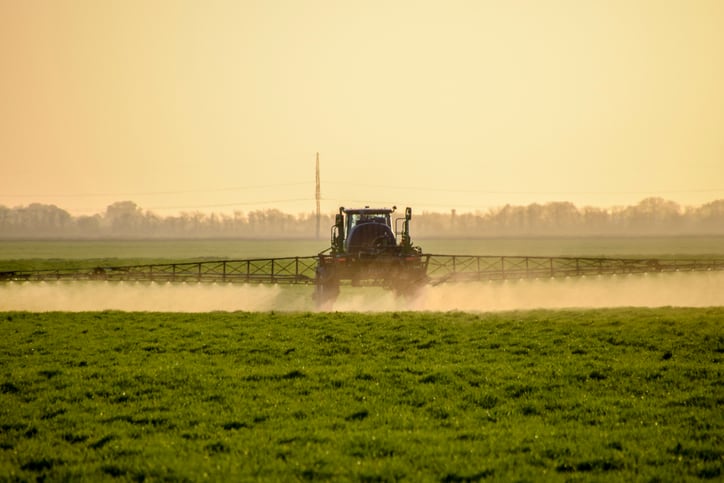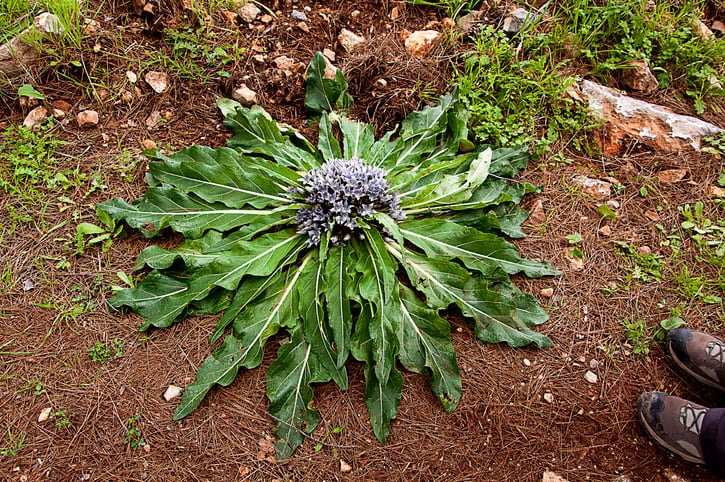Bayer has welcomed the European Commission’s announcement that it is approving the use of the controversial weedkiller glyphosate across the European Union for another decade after member states failed to reach an agreement.
“This reauthorisation allows us to continue to provide important integrated weed management technology to farmers across the European Union,” the company said in a statement.
But the move was condemned by campaigners, who claim the world’s most widely used pesticide is associated with risks of cancer and other health disorders.
“This is a sad day for Europe, as governments chose to ignore science and failed its people, in particular victims of #glyphosate,” said Greenpeace. “Given existing concerns about its toxicity for health and nature, the EU Commission should not extend the licence for this toxic substance.”
It pointed out that Bayer has lost three legal cases against cancer patients in the US who claimed their illness was due to exposure to glyphosate-based Roundup weed killer.
In France – which abstained from the EU vote – farmers who can prove they are suffering from Parkinson’s disease are entitled to compensation from the government.
In another recent study glyphosate was associated with worse brain function among adolescents.
The French pro-environmental farming group Confederation Paysanne called the decision to reauthorise the use of glyphosate ‘scandalous’. “Reauthorizing glyphosate is a monumental mistake,” it said in a statement. “This ignores the reality that farmers are the first victims of pesticides, chemical and economic crutches. This makes people believe that continuing to use this herbicide poses no problem.”
The Health and Environment Alliance (HEAL) also urged the European Commission to withdraw its proposal for a renewal based on the amount of scientific evidence warranting serious health impacts.
“It is unacceptable that the Commission still plans to go ahead with its proposal considering the amount of scientific evidence of the substance’s health impacts and the related suffering,” said Natacha Cingotti, HEAL’s Health and Chemicals Programme Lead. “While we can’t undo the decades of exposure, the Commission can still seize the opportunity to turn the tide towards more sustainable agricultural practices and drop its proposal now.”
‘No current equivalent to glyphosate’
In 2015, the World Health Organization’s International Agency for Research on Cancer (IARC) classified glyphosate as ‘probably carcinogenic to humans’. A subsequent assessment of the impact of glyphosate on the health of humans carried out by the European Food Safety Authority did not identify ‘critical areas of concern’. However, some data gaps – including a lack of information about the toxicity of one of the components present in the glyphosate-based pesticide formulation submitted for evaluation – were reported in EFSA’s conclusions. This followed the European Chemicals Agency (ECHA)’s hazard assessment of glyphosate, which concluded that it did not meet the scientific criteria to be classified as a carcinogenic, mutagenic or reprotoxic substance.
On biodiversity and claims that glyphosate poses a threat to environmental sustainability, EFSA’s experts recognised that the risks associated with the representative uses of glyphosate are ‘complex and depend on multiple factors’. They also noted a lack of harmonised methodologies and agreed specific protection goals. Overall, the available information “does not allow firm conclusions to be drawn on this aspect of the risk assessment and risk managers can consider mitigation measures”, they said.
Bayer further claims that glyphosate supports sustainable farming, thanks to its role in minimising tillage farming practices, which results in significantly less soil erosion and compaction, conserved moisture in the soil, and preserved soil health. It also leads to improved water quality and reduces fuel inputs and greenhouse gas emissions, the company states.
Europe’s largest farmer association Copa-Cogeca, which had called for the European Commission to “follow the science-based conclusions of ECHA and EFSA agencies and opt for a reauthorisation of 10 years” added there was no current equivalent to glyphosate. “Without it, many agricultural practices, notably soil conservation, would be rendered complex, leaving farmers with either no solutions or with alternatives that consume even more herbicides.”





